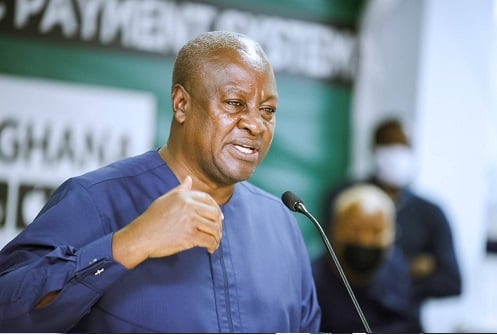President John Dramani Mahama, in his address to the National Convention of the Ahmadiyya Muslim Mission in Winneba, underscored his renewed commitment to revitalizing Ghana’s healthcare system. Just days after his inauguration, President Mahama articulated a comprehensive strategy focused on completing stalled health projects, bolstering critical infrastructure, and investing in the country’s healthcare workforce. He emphasized that these initiatives are crucial steps in ensuring equitable access to quality medical care for all Ghanaians, echoing his campaign promise to prioritize abandoned projects across various sectors, particularly within healthcare. The President’s vision centers on expanding healthcare access nationwide, signifying a dedication to bridging the healthcare gap and improving health outcomes across the country.
A central pillar of President Mahama’s healthcare plan involves the resuscitation of unfinished health projects, breathing new life into initiatives that have been left dormant. This commitment aims to maximize existing investments and ensure that previously allocated resources contribute to tangible improvements in healthcare delivery. By bringing these projects to fruition, the administration aims to expand the reach of healthcare services, reaching underserved communities and minimizing disparities in access to care. This focus on completion ensures that public resources are utilized effectively and contribute directly to the well-being of the Ghanaian population.
In addition to reviving stalled projects, President Mahama stressed the critical importance of investing in healthcare infrastructure and human resources. Recognizing that physical facilities and skilled personnel are the cornerstones of a robust healthcare system, the President pledged to prioritize investments in both areas. This dual focus acknowledges the interconnectedness of infrastructure and human capital in providing effective healthcare services. Modern facilities equipped with the necessary technology, combined with a well-trained and adequately staffed healthcare workforce, are essential for delivering high-quality care to patients.
President Mahama’s plan underscores the interconnectedness of access, quality, and investment in achieving a well-functioning healthcare system. He emphasized that access to healthcare should not be a privilege but a fundamental right for every Ghanaian. By investing strategically in infrastructure and human resources, the administration aims to elevate the quality of medical care available throughout the country. This holistic approach recognizes that accessible healthcare must also be quality healthcare, ensuring that individuals receive the appropriate level of care they need, regardless of their location or socioeconomic status.
A key component of the President’s healthcare agenda is the completion of the Agenda 111 initiative, an ambitious program launched by the previous administration to construct 111 hospitals across Ghana, including three specialized psychiatric facilities. This initiative was designed to bolster healthcare services in underserved districts, addressing disparities in access and strengthening the nation’s healthcare infrastructure. Under the previous administration, only three of these hospitals reached completion, but remained non-operational. President Mahama has pledged to finalize these projects and ensure their full functionality, bringing them online to serve the communities for which they were intended.
The revival and completion of these abandoned hospitals represent a significant step towards realizing the original goals of Agenda 111: to provide modern, well-equipped healthcare facilities to communities in need. By operationalizing these hospitals, the administration intends to significantly expand access to quality healthcare, particularly in underserved districts. This commitment aligns with the broader objective of ensuring that all Ghanaians have access to essential medical services, regardless of their geographical location. The completion of Agenda 111 not only strengthens the healthcare infrastructure but also contributes to fulfilling the promise of accessible and equitable healthcare for all.


